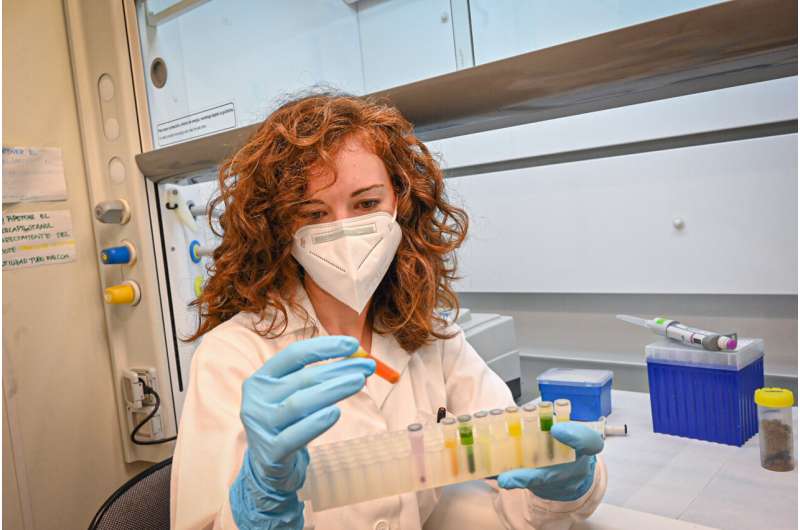
A team from the Universitat Politècnica de València has just published a study analyzing the potential of plant extracts and/or natural compounds to inhibit the protease activity of the SARS-CoV-2 coronavirus.
According to Carla Guijarro, a researcher at the UPV’s COMAV, SARS-CoV-2 encodes a protease known as 3CLPro in its genetic material, which is key to the formation of new viral units. “Given its importance, this protease has been chosen in several studies as a target to search for potential inhibitors, either natural or synthetic, that can reduce its activity and therefore the reproductive capacity of the virus,” says Guijarro.
Thus, in their study, published in the journal Foods, the COMAV team identified 17 plant products used in current and traditional cuisine as “promising inhibitors of the 3CLPro activity of SARS-CoV-2.” Their results were based on previous research published by other research groups, as well as on computer modeling studies in which they tested the potential capacity of different molecules to inhibit the protease.
“With this information, we selected plant foods that are rich in those molecules which had been previously identified as having significant inhibitory action, and evaluated the extracts that we obtained from them,” Carla Guijarro adds. The result was that extracts derived from turmeric, mustard and a wild cruciferous species produced the highest protease inhibition at the concentration tested. Among these, the turmeric-derived extract presented the most positive results.
“To date, other studies using computer modeling had predicted the affinity that several compounds contained in turmeric (known as curcuminoids) have to 3CLPro, which translates into a potential for use as inhibitors of 3CLPro. In our case, we have evaluated an extract obtained from turmeric rhizome and obtained the first positive in vitro result of this kind of inhibitory activity. Additionally, we also obtained a positive response when we tested a purified commercial curcuminoid-based product. Therefore, the results of our research support those that had been advanced by computer models,” explains Guijarro.
Source: Read Full Article
